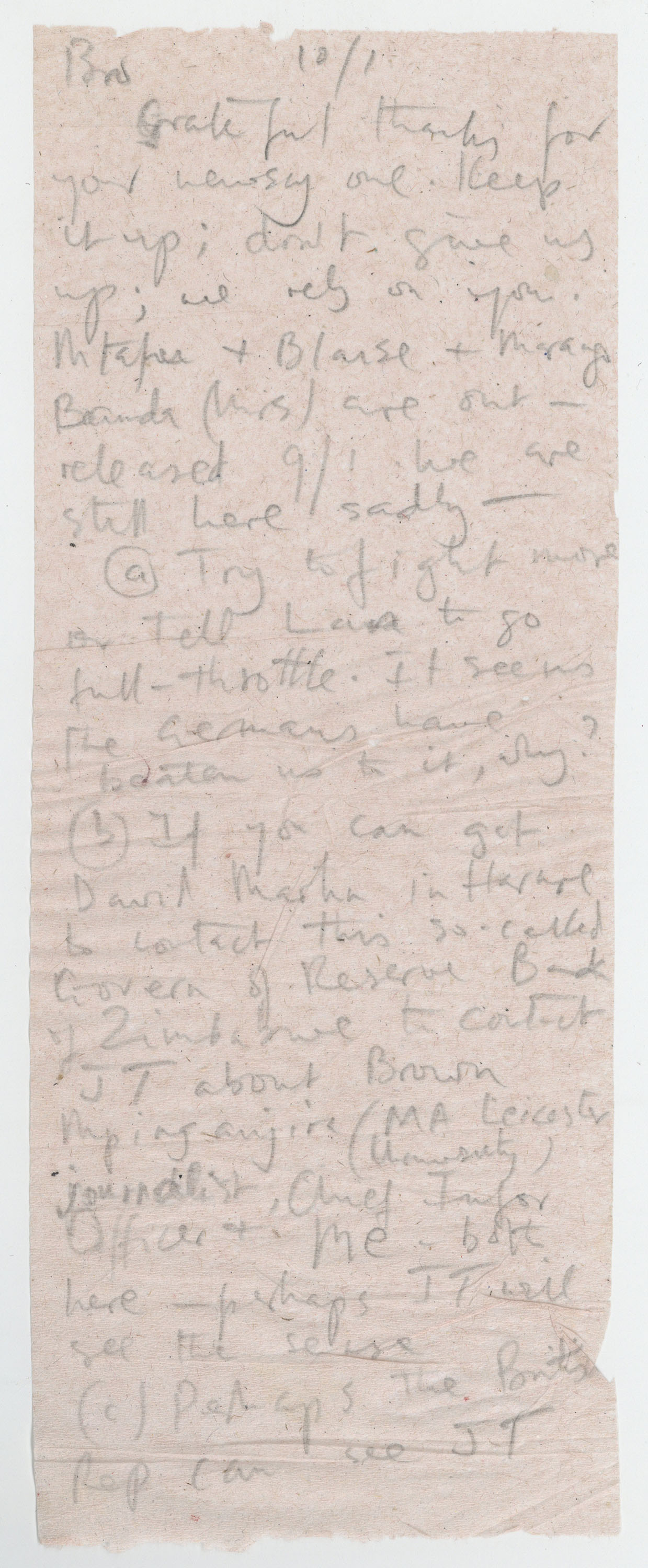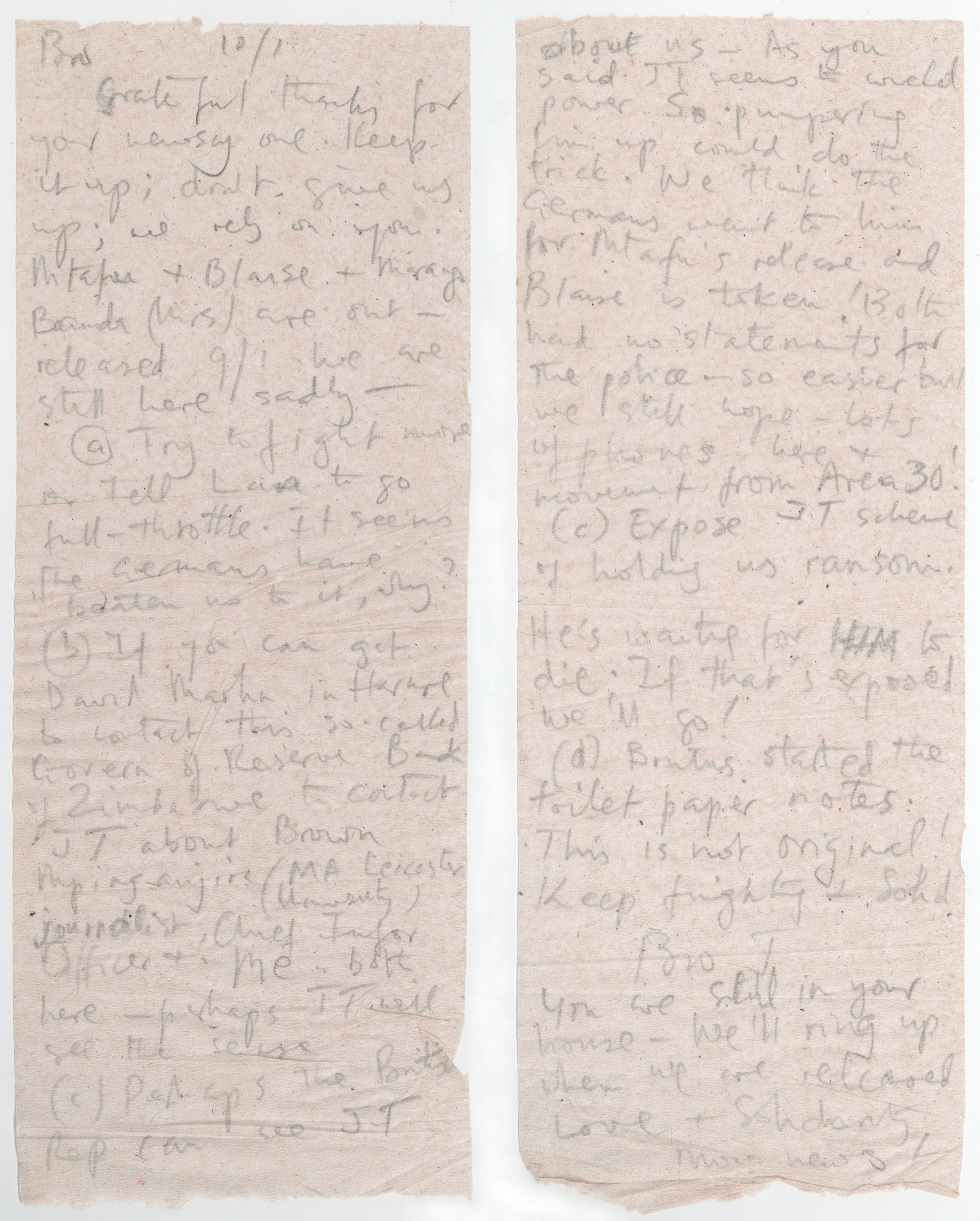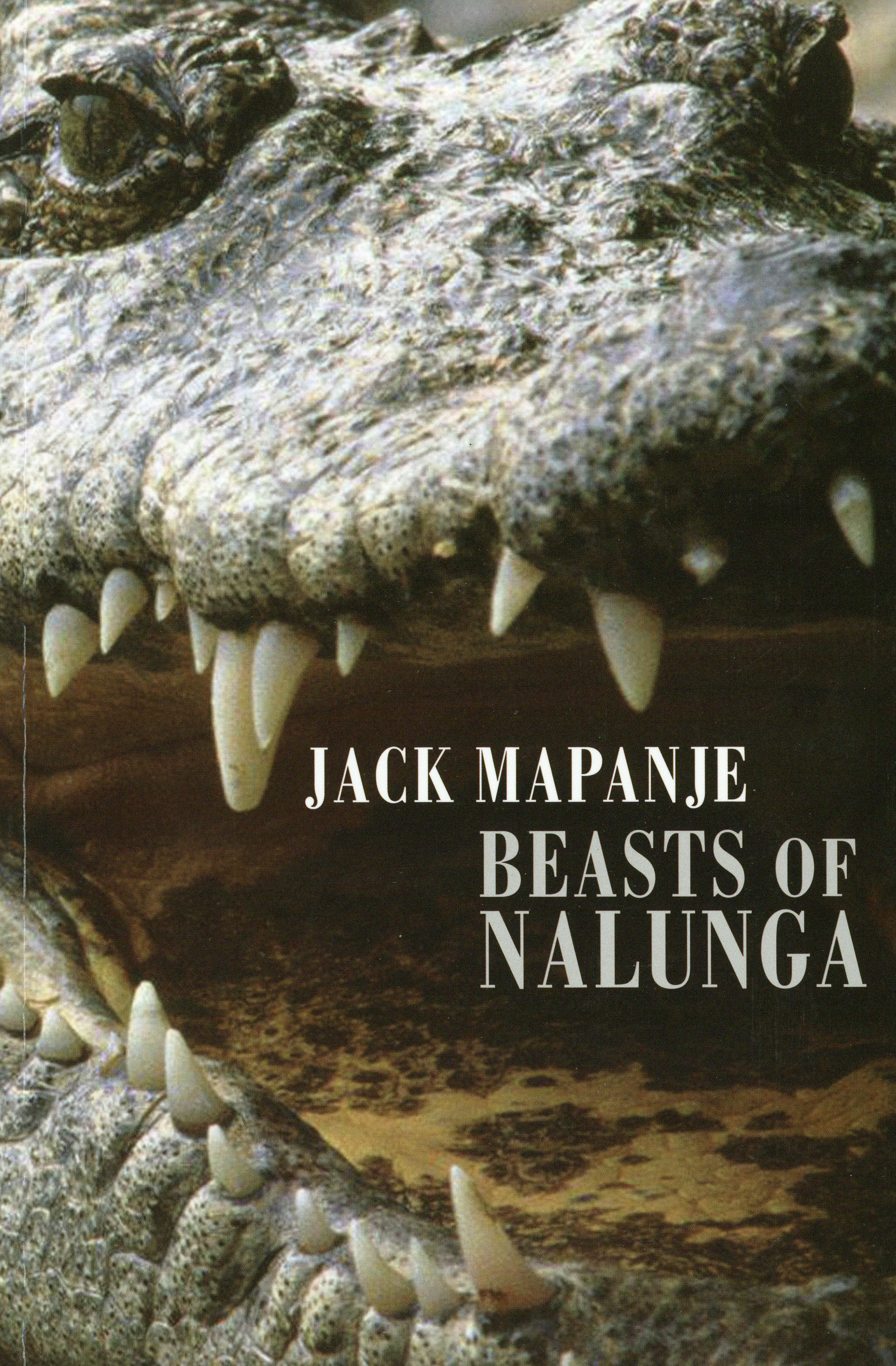
Extract from a letter written by Jack Mapanje to David Kerr whilst a prisoner in Mikuyu Prison in Malawi (Jack Mapanje Archive, MAP/6/3/43)
Within Special Collections and Archives we hold the papers of a number of contemporary poets. One of that number is Malawian poet Jack Mapanje. In 1987 he was imprisoned for 4 years for critical views of the Malawian government expressed in his first published collection of poems. Since then he has had several more works published alongside a career as an academic in Malawi and the UK. In the Mapanje (Jack) Archive we hold material relating to his poetic works, items relating to his academic career in both Malawi and the UK, and perhaps most interestingly, correspondence written during and after his time held as prisoner of conscience.
Jack Mapanje was born in 1944 in Malawi, where he was educated before he studied at universities in Malawi and the UK. He then went on to lecture in the Department of English at Chancellor College, University of Malawi. In 1983 he was awarded a PHD in linguistics after study at University College London, he then returned to work at the University of Malawi.
During this time Jack Mapanje witnessed at first hand the regime of Hastings Banda and began to write poetry, some of which reflected his despair at the political situation. His first collection, Of Chameleons and Gods, was published in the UK in 1981. In 1985 the Malawian government withdrew the book from circulation without reason, and in 1987 Mapanje was arrested and imprisoned without trial in Mikuyu Prison.
Whilst detained he wrote a series of letters to David Kerr, an English colleague and friend who also worked at the University of Malawi. Their content tells of the conditions inside the prison and Mapanje’s thoughts on the campaign to release him. The harshness of prison conditions meant that paper and letters had to be smuggled into and out of the prison. This included using clean toilet paper as a medium on which to write letters.
One letter written on toilet paper survives as part of our collection (MAP/6/3/43). This particular letter is dated the 10/1, in it he mentions prisoners released the previous day and discusses possible tactics and options open to his contacts fighting for his release.

Extract from a letter written by Jack Mapanje to David Kerr whilst a prisoner in Mikuyu Prison in Malawi (Jack Mapanje Archive, MAP/6/3/43)
Whilst he was in prison his first collection, Of Chameleons and Gods won the Rotterdam Poetry International Award and the PEN/Barbara Goldsmith Freedom to Write Award. These helped to highlight his plight and political oppression in Malawi to an international audience. At the same time there was a campaign for his release coordinated by Amnesty International which involved several well-known writers and activists including Harold Pinter and Noam Chomsky.
He was eventually released in May 1991, after this he and his family moved to the UK. In the years since he has had a successful career as an academic with several universities and has carried on writing. The collection of poems he largely wrote whilst in Mikuyu Prison, ‘The Chattering Wagtails of Mikuyu Prison’, was published in 1993. More recent books include The ‘Last of the Sweet Bannanas: new and selected poems’ and ‘The Beasts of Nalunga’. He has edited other works and his memoir, ‘And Crocodiles are Hungry at Night’ was published in 2011.

Front cover of ‘Beast of Nalunga’, published by Bloodaxe Books in 2007 (Bloodaxe Books Collection, Bloodaxe 821.94 MAP)
A catalogue of Jack Mapanje’s papers held at Newcastle University Library can be found here on our Archives Hub pages and a small selection of digitised images from the archive can be found on Collections Captured.
